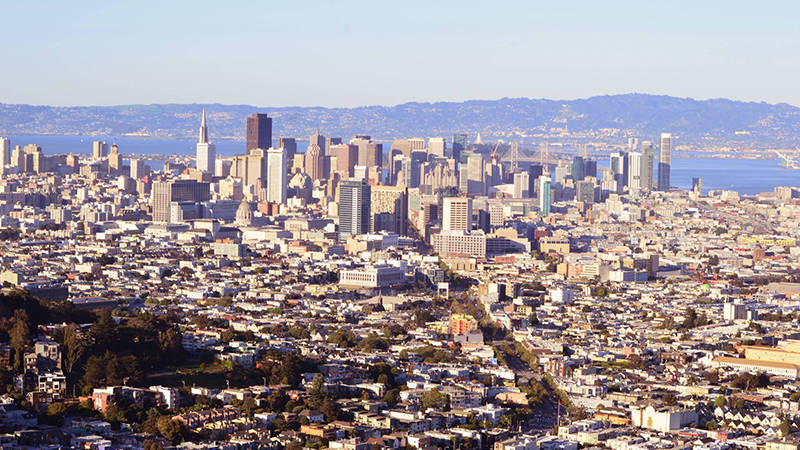San Francisco’s Hotel Tax was originally created in 1961 to support the city’s arts industries, and the construction and operation of convention facilities. Starting in the 1970s, funds from the Hotel Tax were allocated to fund low-income housing. In early 2000s, the city amended the allocations for the arts as part of the annual budget process, reducing funding gradually, and ultimately repealing specific allocations altogether. Money that went towards low-income housing from the fund was eliminated. (The city offers funding for people in need of food and shelter through other channels, such as the Mayor’s Fund for the Homeless.)
Meanwhile, San Francisco hotel revenues have increased by 135 percent over the past decade. These days, most of the Hotel Tax money ends up in the city’s General Fund. The fund is sizable and has grown enormously over the past decade: at the end of 2014-2015 fiscal year, the total Hotel Tax revenue was close to $400 million, up from just over $150 million ten years previously.
“The Hotel Tax is a massive source of revenue in San Francisco, yet the arts and homeless services in San Francisco have been severely underfunded,” says Nicole Derse, principal at 50+1. “It makes sense that we should direct funding back towards the Hotel Tax’s original intent.”
How the money will be used
If the measure passes in November, it will use funds from the Hotel Tax kitty in an effort to end homelessness for families living in San Francisco. A 2015 report by the Coalition on Homelessness estimates that there are nearly 2,000 homeless families in the city, including more than 3,200 minors. Funds will specifically be used for rapid re-housing, prevention and diversion, capital and operating costs for the development, rehabilitation and acquisition of new housing for homeless families, and the administration of these programs.
“I couldn’t imagine a San Francisco that doesn’t support its homeless families and its arts and culture,” says Martha Ryan, executive director of the Homeless Prenatal Program (HPP), a local support center for impoverished and homeless families, and a member of the coalition. “Seeing the women who come to the Homeless Prenatal Program for vital services, I think there is nothing more important than making sure family homelessness services are funded. The beautiful arts in our communities and our city’s vibrant cultural institutions makes us who we are, and we have to financially support them to keep San Francisco’s spirit intact.”
The measure also calls for a portion of the Hotel Tax fund to be earmarked for the cultural industries, including general operational support for San Francisco arts and cultural organizations, arts service organizations, capital investments and regranting programs, arts tourism initiatives and neighborhood arts collaborative programs with the San Francisco Arts Commission.
“The Hotel Tax was originally created to support arts industries, but has been experiencing gradual reductions since the early 2000s,” says Jon Moscone, chief engagement officer at Yerba Buena Center for the Arts (YBCA), a visual and performing cultural venue, producer and presenter in downtown San Francisco. YBCA is a member of the coalition. “Speaking as a native San Franciscan and an artist, this measure not only addresses the critical issues facing arts funding, but also steps up and addresses funding needs for family homelessness.”
The measure is intended to have a wide-reaching impact on the city’s arts and culture offerings. However, it is not comprehensive in terms of its scope: “Our measure funds primarily the Grants for the Arts (GFTA), Arts Commission, War Memorial, convention facilities, Cultural Equity Endowment Fund and creates a new Neighborhood Arts Fund,” Baijal says.
Stronger together
Derse says a number of San Francisco’s arts organizations started working together to strengthen the local cultural ecosystem over a year ago, by advocating for more cultural equity in the last budget cycle. Derse says that homelessness service providers were having similar discussions at that time, specifically around family homelessness. “Both groups were looking to the Hotel Tax,” Derse says. “We realized there was lots of common ground, so in the last three months we’ve been combining efforts.”
Instead of filing separate ballot measures — “we thought it would be confusing to voters to see multiple hotel tax measures on the ballot,” Derse says — the two communities decided to move forwards with a single proposal. “We realized we’re stronger together,” Derse says.
In order to get the measure on the November ballot, the coalition members have about a month starting in early June to collect 9,485 signatures on their petition, once the Department of Elections issues the coalition with a title and summary. (If the measure were brand new charter amendment rather than an amendment to an existing ordinance, the requirement would be 43,280 signatures.) If the requisite number of signatures is collected and the measure gets through, it will need approval from at least two-thirds of San Francisco’s voters to pass.
Derse says the arts and homeless organizations are now working to raise public awareness about the measure in order to get the necessary signatures on the petition, and then inspiring additional arts and homeless advocacy groups and leaders to join the cause. “We are organizing groups and supporters to start collecting petitions,” Baijal says. “It’s a great opportunity for supporters to get involved from the get-go.”


